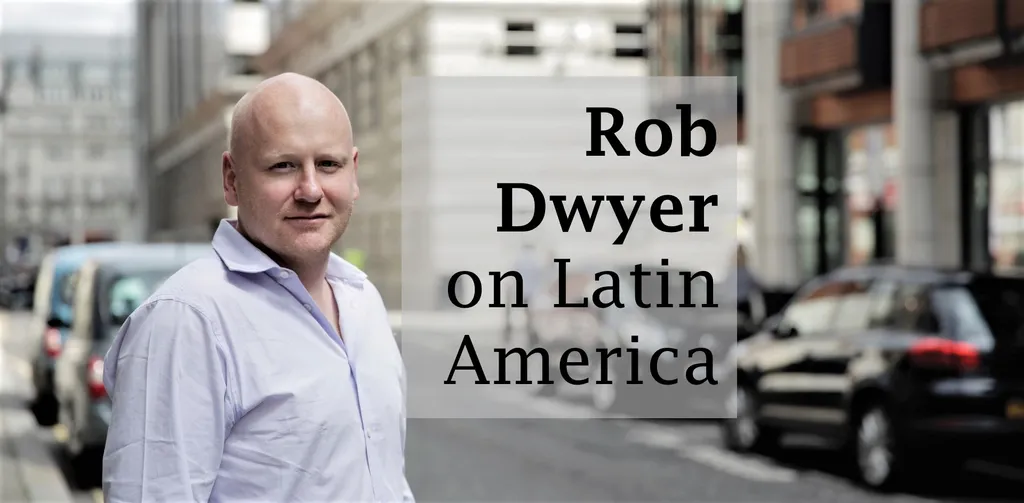When the rumours that Banco Galicia was seriously interested in buying HSBC’s operations in Argentina turned into speculated ‘fact’ in unattributed Bloomberg reporting, I doubt it caused too much surprise in the market.
Galicia’s senior management has long been happy to express its desire to be a leader in a market that is crying out for consolidation.
In 2016, the bank’s chairman, Sergio Grinenco, confirmed to Euromoney that it was interested in buying HSBC, had tried to buy Citi’s bank in Argentina (losing out to Santander Rio) and was leading the pack of banks interested in buying Banco do Brasil’s stake in Banco Patagonia (before that was abandoned due to arguments between the existing shareholders).
Nor would the news that HSBC was up for sale surprise anyone. For almost a decade senior market participants have been happy to go on the record about the fact that the bank was seeking to divest its Argentina business.
However, what might have surprised the market – and certainly did me – is the timing.
In the past, Galicia has been a little more cautious on timing market upswings. Under the previous reformist administration of Mauricio Macri, Galicia waited until September 2017 – 22 months after Macri assumed power – before conducting a $500 million follow-on that was meant to give it the financing ability to conduct M&A.
Galicia’s reticence to act earlier in the previous window of opportunity might be informing its desire to move more quickly this time
If Bloomberg’s reporting is correct and the HSBC acquisition has already been signed – none of my senior contacts at either bank could confirm the deal had been agreed – the bank has pulled the trigger just four months into the new administration.
This might be a consequence of that previous hesitancy. Galicia’s reticence to act earlier in the previous window of opportunity might be informing its desire to move more quickly this time. It is probably also driven, in larger part, by a seller that is in more of a hurry. HSBC has been keen to get out of Argentina for a long time, although, to be fair to the bank’s global management, they have been investing in the bank in recent years to ensure they still have a good asset to sell.
In Argentina, HSBC has around 100 branches, 3,000 employees and a million clients, most of whom are in the more affluent retail section, which would make the bank a notable acquisition for Galicia in particular and a prominent transaction for the market in general.
Perhaps most importantly, it suggests that fear of a potential banking collapse, which was a not insignificant risk at the beginning of new president Javier Milei’s administration, already appears to be receding.

Just last November, when I spoke to senior bankers in both retail and investment banks, the general sentiment was considerably more bearish than it is today. There was a strong focus among those interviewees on the risk that devaluation and the huge question mark over Milei’s ability to generate a coalition to pass a coherent reform agenda could together spark problematic levels of deposit flight among the country’s retail banks.
So far, this hasn’t happened. In fact, the outlook for the Argentine banks has improved rapidly.
In the first quarter of this year, along with full-year 2023 results, both Galicia and Banco Macro – which recently bought Brazilian lender Itaú’s bank in the country – upgraded their guidance on their returns on equity for this year. That came thanks to their positive exposure to inflation and dollar-linked securities, as well as their solid capital positions and resilient net interest margins (NIMs). Specifically, Galicia mentioned an RoE of between 12% and 15%.
As well as a positive fundamental outlook, the banks are gaining from regulatory changes enacted by the central bank. The high level of prescription that previous administrations placed on the banking system created a notoriously difficult operating environment. However, the central bank has already scrapped minimum interest rates for deposits – creating uplift for NIMs – and is expected to scrap or ease rules that prohibit dividends and branch closures.
The banks won’t need to be asked twice to optimise capital structures and improve their cost bases.
Sunny sentiments
The surprisingly sunny sentiment in Buenos Aires is good news, but investors should not get too carried away.
Citi recently upgraded its outlook for Argentine banks, based largely on these positive factors. But while the micro improvements are undeniable, the macro remains more finely balanced.
Organic credit demand will still require economic growth, while the rebalancing strategy remains wobbly: strong progress on the fiscal adjustment needs to be consolidated; and though Milei’s popularity continues to be high, governability remains an issue, especially if public sentiment begins to sour.
Specifically, for the banks, real interest rates remain deeply negative, thanks to spiking inflation.
For now, any acquisition of HSBC should be read as an expression of optimism on the part of Galicia’s senior management. But I can’t help feeling that it is still too soon to determine whether that optimism is well founded or is more an exasperated expression that, if not now, then when?




